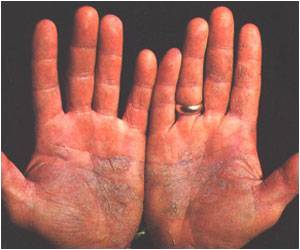Bacterial reproduction can be boosted by the use of antibiotic drugs, reveals study.
- Antibiotics drugs are found to stimulate bacterial reproduction.
- Mutated E.coli bacteria when exposed to eight rounds of antibiotic for four days, reproduce much faster and were three times larger than encountering the drugs.
- It is necessary to choose the right antibiotic on patients so that there is no adaptations in the clinic.
When the research team took the antibiotic drugs away, they found that the evolutionary changes were done and the new-found abilities remained.
Professor Robert Beardmore, University of Exeter, said, "Our research suggests there could be added benefits for E.coli bacteria when they evolve resistance to clinical levels of antibiotics."
"It's often said that Darwinian evolution is slow, but nothing could be further from the truth, particularly when bacteria are exposed to antibiotics.”
"Bacteria have a remarkable ability to rearrange their DNA and this can stop drugs working, sometimes in a matter of days.”
Efficacy of Doxycycline Antibiotic in E.Coli
The research team tested the effect of doxycycline antibiotic in E.coli bacteria to understand the changes in the DNA brought by the antibiotics.
Clinically, E.coli producing more antibiotic pumps were found to exploit the antibiotics out of the cell. And the loss of DNA is another well-known change that is known to describe the dormant virus.
Dr. Carlos Reding, said, "Our best guess is that losing viral DNA stops the E.coli destroying itself, so we see more bacterial cells growing once the increase in pump DNA allows them to resist the antibiotic in the first place."
Dr Mark Hewlett, University of Exeter, added, "It is said by some that drug resistance evolution doesn't take place at high dosages but our paper shows that it can and that bacteria can change in ways that would not be beneficial for the treatment of certain types of infection.”
"This shows it's important to use the right antibiotic on patients as soon as possible so we don't see adaptations like these in the clinic."
The current study uses liquid conditions, so that the E.coli bacteria can increase cell production.
References
- Carlos Reding-Roman et al, The unconstrained evolution of fast and efficient antibiotic-resistant bacterial genomes, Nature Ecology & Evolution (2017). DOI: 10.1038/s41559-016-0050
















